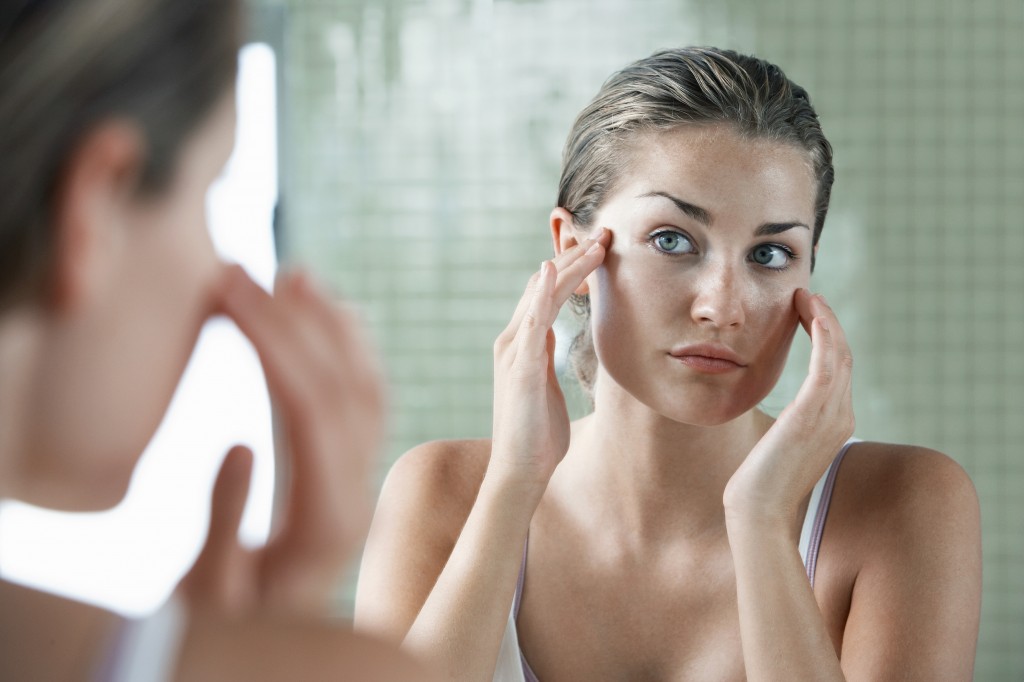How-To Create a Customized Skin Care Routine
- Published: Thursday, April 7th 2016
- in Beauty
by Belleza Spa, Salon, and Boutique
Everyone’s skin is unique and it changes with age. That’s why you need an individualized skin care regime to keep your skin looking and feeling healthy. Here’s an overview of how to develop a customized skin care routine to put your best skin forward.
Understanding the 4 Basic Skin Types
Before creating a customized skin care routine, you need to know what skin type you have. There are four basic types: normal, dry, oily, and combination. Each one requires a different skin care treatment to keep your skin looking healthy.
- Normal Skin: Normal skin is the least problematic in terms of appearance. It has good elasticity and a balanced level of moisture and color tone. This skin type requires a minimal amount of care — simply wash your face with a gentle cleanser at night to maintain a healthy glow. Also, apply sunscreen if you’re going outdoors for an extended period.
- Dry Skin: Dry skin is easily agitated by the sun, wind, and elements. It also feels itchy, flaky, and rough to the touch. In addition to washing your face morning and night, apply a daily moisturizer with sunscreen, and reapply frequently if you spend a lot of time outdoors. People with dry skin also tend to develop wrinkles earlier than their counterparts, so apply moisturizer frequently to avoid this.
- Oily Skin: Oily skin is the most acne-prone skin type and it usually looks greasy or shiny. This skin type is also characterized by enlarged pores and blackheads on the nose. If you have oily skin, avoid touching your face and keep your carbohydrate consumption at a minimum. Also, use a cleanser morning and night and an exfoliator often. You don’t have to worry too much about a moisturizer.
- Combination Skin: Combination skin is the most common skin type. It’s characterized by patches of oily skin on the nose and forehead, but normal skin on the cheeks and jaw line. If you have combination skin, use a gentle cleanser morning and night, paying particular attention to the areas where oil builds up. Make sure to wear sunscreen, too.
 Considering Other Skin Factors
Considering Other Skin Factors
In addition to the four basic skin types, you may have to deal with other skin factors, depending on your age, genetics, and health. Take a look at these four other skin factors that affect the way you should take care of your skin.
- Sensitive Skin: Some people have sensitive skin that gets dry, itchy, and easily irritated by some skin care products. It is usually caused by a genetic factor. Sensitive skin is prone to reddish, scaly areas and acne breakouts. It requires special care with cleansers made specifically not to irritate the skin. Look for products that say, “hypoallergenic” and “for sensitive skin.”
- Skin of Color: In many ways, pigmented skin is more resilient than other types. However, some skin care products can cause hyperpigmentation and irritation. Therefore, if you have darker skin, you need to look for products specifically made for your physiology. The darker the skin you have, the more sensitive it is to certain abrasive skin care products. A simple skin care regimen with a gentle cleanser is best.
- Aging Skin: As your skin ages, it gets wrinkles and becomes more sensitive. The elasticity also suffers. Therefore, it’s important to use moisturizer more religiously as your skin ages. Also, you should never go outside without sunscreen because your skin is more sensitive to ultra-violet rays when you’re older.
- Cyclic Acne: Some people notice that they only get breakouts during certain times of the month. This is because hormones play a role in the oiliness of your skin. That’s why 90 percent of teens report problems with acne, and 40 percent have a hard time dealing with it, according to the Acne Resource Center (ARC). Puberty is the time that you are most prone to cyclic acne.
Contrary to what skin care product commercials tell you, there is no one product that is right for every skin type. You need to find the ones that work best for you. And, you don’t usually have to spend a lot of money to find the right combination. There are several skin care products you can have in your arsenal. Take a look at your options.
- Cleanser: Every skin type should use a gentle cleanser to wash away dirt and oil. Use it in the shower and before going to bed.
- Toner: Toner helps even out skin tone and draw oil out of the pores, especially if it includes an astringent. It’s a good option for skin of color and those with oily skin.
- Exfoliator: People with oily skin should use an exfoliator three to five times a week to help remove excess oil and skin cell buildup.
- Acne Spot Treatment: Treat acne breakouts and cyclic acne with acne spot treatment medicine. It is typically worn overnight to deliver medicine, either salicylic acid or benzoyl peroxide.
- Skin Lighteners: This is a type of moisturizer that gradually lightens brown spots and discolorations because it prevents excess melanin production in your skin.
- Anti-Aging Cream: As you age, you should use a moisturizer that improves your skin’s elasticity to prevent wrinkles. Anti-aging cream reduces wrinkles and fills fine lines.
- Skin Moisturizer/Sunscreen: All skin types should use a moisturizer with built-in sunscreen of SPF 15 or higher. Use a higher SPF if you’re going to spend extended time in the sun.
Creating a Daily Customized Skin Care Routine
Once you’ve gotten the right skin care products for your skin type, you need to develop a customized skin care routine that keeps your skin healthy. Most dermatologists recommend that you wash your face morning and night, and after any rigorous workouts. The oilier your skin, the more often you should wash it to prevent acne and other blemishes.
In addition to choosing good skincare products, there are lifestyle choices you can make to keep your skin clear and looking healthy. For instance, exercise, eating healthy, and staying hydrated can do wonders for your skin. Additionally, your skin may improve if you stop smoking. Everything you take into your body affects your skin, so be as healthy as possible.
It’s also important to keep in mind that your skin type can change over time. For instance, people typically have the oiliest skin during their teens and early twenties, then your skin tone evens out for most of your adult life, and then turns sensitive and dry in the geriatric years.
Everyone needs a customized skincare regimen. So, look for products that work well with your skin type and then develop a routine to best treat your skin. That way you’ll always put your best skin forward.
Your Wellness Tip To-Go:
Once you get your customized skin care routine started at home, consider setting up a monthly facial appointment for professional maintenance (and a little R&R at the spa!).




